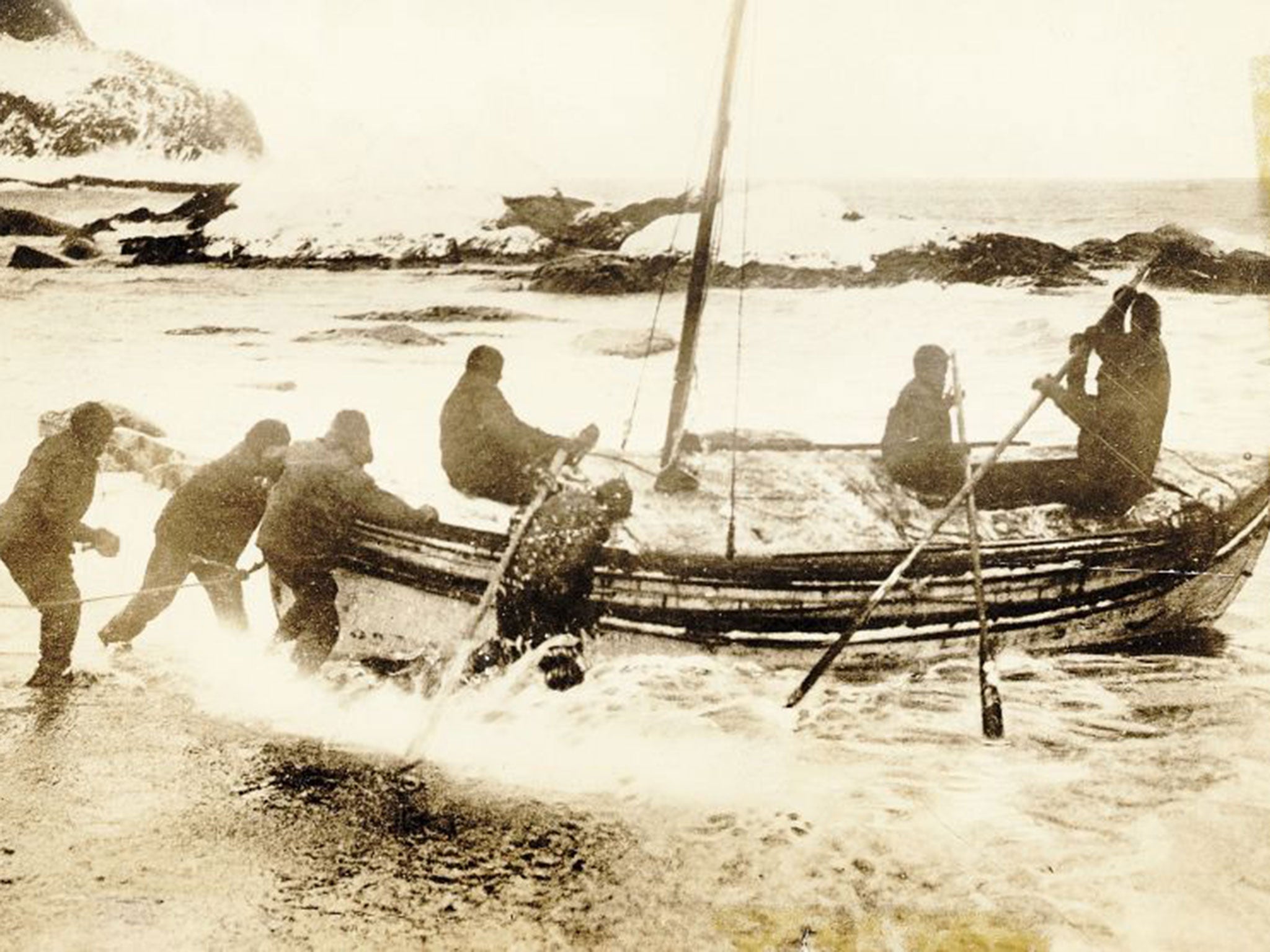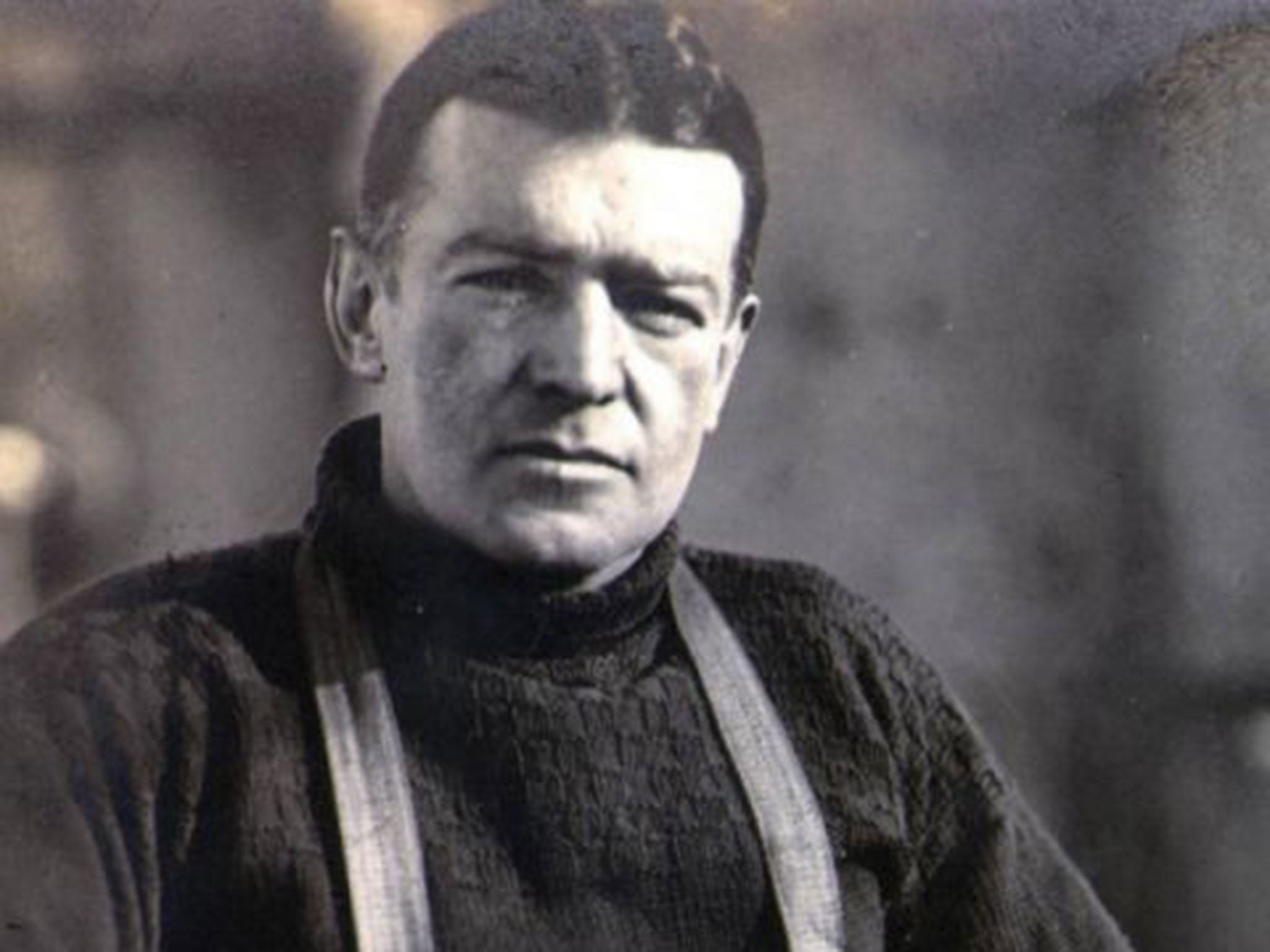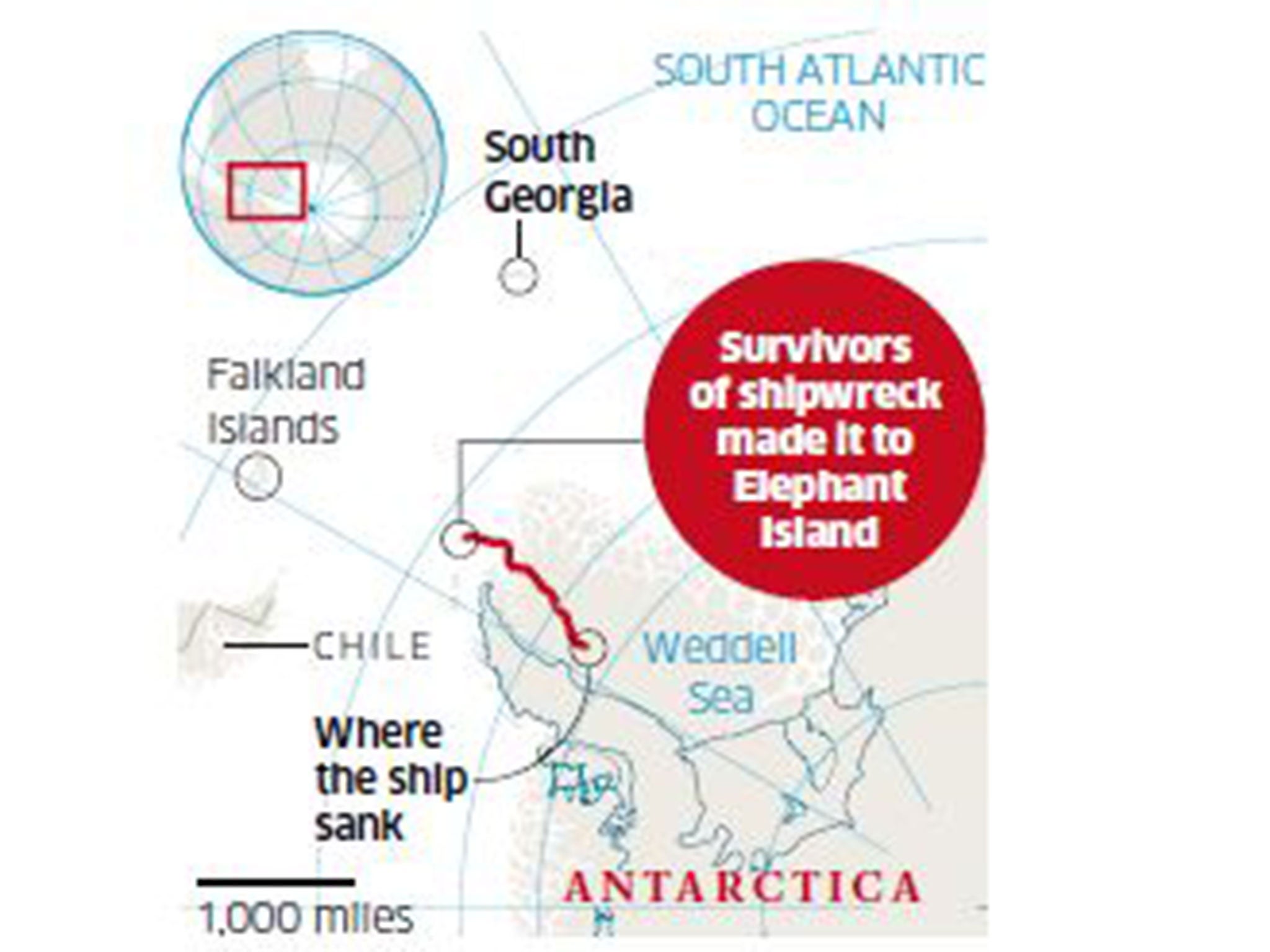Explorer Ernest Shackleton 'put media before his men by refusing sturdier ship for lucrative newspaper deal'
Research paper claims polar explorer turned down more suitable vessel as it would not have allowed him to 'milk the media story'

Your support helps us to tell the story
From reproductive rights to climate change to Big Tech, The Independent is on the ground when the story is developing. Whether it's investigating the financials of Elon Musk's pro-Trump PAC or producing our latest documentary, 'The A Word', which shines a light on the American women fighting for reproductive rights, we know how important it is to parse out the facts from the messaging.
At such a critical moment in US history, we need reporters on the ground. Your donation allows us to keep sending journalists to speak to both sides of the story.
The Independent is trusted by Americans across the entire political spectrum. And unlike many other quality news outlets, we choose not to lock Americans out of our reporting and analysis with paywalls. We believe quality journalism should be available to everyone, paid for by those who can afford it.
Your support makes all the difference.It went down as one of the most remarkable and daring rescue missions during the heroic age of Antarctic exploration: Sir Ernest Shackleton saving his own men who had become stranded on an inhospitable island after his ill-fated attempt to make an early land crossing of the Antarctic continent.
The doomed Imperial Trans-Antarctic Expedition (ITAE) of 1914-17 has gone down in history despite the fact its aims were never realised. Although he failed in his crossing attempt, Shackleton was regarded as a hero because of his efforts to save his stranded men.
But new evidence has emerged suggesting the debt-ridden polar explorer may have put the lives of some of his men in jeopardy to retain the potentially lucrative media opportunities he needed to document the expedition.
A new research paper soon to appear in the journal Polar Record claims that Shackleton’s exclusive media tie-in with the now defunct Daily Chronicle newspaper initially led him to refuse an offer of a far more suitable ship than the one in which he eventually made the famous rescue. The claims, based on newly unearthed official archival documents, suggest Shackleton declined the offer because he would not have been present on the rescue ship and therefore would not have been able to “milk the media story”.

The paper also reveals for the first time the lengths the British government was prepared to go to underwrite the rescue attempts amid the First World War. The total cost of the rescue mission was about £65,000 – roughly £30m in today’s values.
Shackleton had proposed to sail to Antarctica and begin a transcontinental march across the continent, through the South Pole, to the opposite side where another party launched from New Zealand would have laid on provisions for Shackleton and his party.
But disaster struck before they even began the trek. Shackleton’s ship, Endurance, became trapped and eventually crushed in thick ice in the Weddell Sea, finally sinking off the coast of Antarctica. The disaster left the group of 28 men stranded for months before they finally took lifeboats to reach the inhospitable Elephant Island.
What happened next has become the stuff of legend. With supplies dwindling, Shackleton and five of his men set off in a tiny, open boat, the James Caird, attempting to travel 800 miles to reach South Georgia where he would raise the alarm. After several failed attempts, Shackleton finally rescued his men using a Chilean ship called the Yelcho.
However, the new paper written by three Antarctic experts reveals that Shackleton was also offered a far more seaworthy ship called Don Ernesto, which would have been captained by the Norwegian-British explorer Carl Larsen – a “highly regarded sea captain”. The ship was the largest and most powerful whale catcher built at the time and was ice strengthened.

Despite being offered it free of charge, Shackleton rejected it. The paper suggests his presence on the ship would not have been necessary as he had never commanded a ship before, and as a result he would not be able to sell the media rights he had signed with the Daily Chronicle.
The paper says: “Without any funds of his own, [Shackleton] was severely constrained by what ships were immediately available to him, and yet he did not choose the best on offer. Shackleton was so deeply in debt that he had to milk the media story for all it was worth. That meant he had to be both personally present and in charge of any rescue effort, whatever the immediate consequences for the marooned parties.”
The paper also reveals the ship that did rescue his men was unsuitable, and that Shackleton was lucky that a storm had dispersed the ice from Elephant Island two days before.
Dr John Dudeney, a former deputy director of the British Antarctic Survey and principal author of the paper, said: “The fact that Shackleton turned down a very credible offer from Carl Larsen, which could well have seen the party on Elephant Island rescued several weeks earlier than actually happened, is very eye opening. It can only be speculation as to why he did this, but he would not have been directly involved and so would have lost control of the media rights, rights essential to his need to make good his debts.”
The British government had also launched a rescue mission. It is suggested that Shackleton was aware of the government’s own plans for securing media rights to the rescue mission and the ground rules for him being involved were made explicit: “No account or narrative, or photographs or sketches of any description … is to be published … or communicated to anyone in such a manner that it may lead to its publication.”
Subscribe to Independent Premium to bookmark this article
Want to bookmark your favourite articles and stories to read or reference later? Start your Independent Premium subscription today.
Join our commenting forum
Join thought-provoking conversations, follow other Independent readers and see their replies
Comments